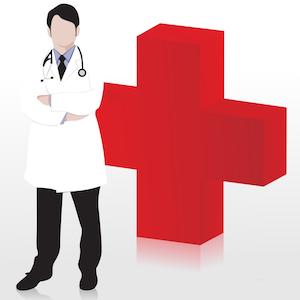There are two kinds of cholesterol, HDL (the "good" kind) and LDL (the "bad" kind). Cholesterol is synthesized by the liver and intestines, and roughly 80% of the cholesterol in your body is produced by it. Only about 20% comes from your diet.
Because high cholesterol, specifically LDL, is associated with cardiovascular disease, it is desirable for people who have a high level of blood cholesterol to lower it. Exercising and eating foods rich in fiber can help. But for some patients, even that is unlikely to be enough. For those unlucky folks who naturally produce a lot of cholesterol, doctors recommend drugs like Lipitor (atorvastatin), a type of drug called a statin that is used to lower cholesterol.
Recently, the CDC assessed the percentage of Americans taking statins. In 2015-16, the CDC found that 50% of men aged 60 years and older were taking a medication to lower cholesterol. Among women, the figure was 38%. (See figure.)

Both of those figures -- 50% of men and 38% of women aged 60 and older being on cholesterol-lowering drugs -- seem awfully high. Is it really necessary for that many Americans to be taking these drugs?
Are Doctors Overprescribing Statins?
Anytime we see half of an entire population (in this case, men aged 60+) being prescribed a drug, it might be time to ask if we're overdoing it. It's possible that we aren't. Prevention, after all, is the best medicine. So if statins are saving thousands or millions of lives, perhaps it's worth it.
But there is something of a public war going on over the use of statins. Indeed, there is tremendous confusion over which patients should receive prescriptions. Professional organizations provide widely varying recommendations on statin use, and researchers clash on their costs and benefits.
Yes, statins do save lives, and some people really need to take them. From that perspective, they are good and necessary drugs. But they also have side effects, such as muscle pain and fatigue. In other words, they can lower a patient's quality of life and/or prevent him from exercising, which is counterproductive.
The biomedical community and public health agencies would be well advised to investigate the pros and cons of such high statin prescription rates. If we can achieve the same health outcomes with fewer meds, we should probably aim for that.
Source: "QuickStats: Percentage of Adults Aged ≥20 Years Told Their Cholesterol Was High Who Were Taking Lipid-Lowering Medications, by Sex and Age Group — National Health and Nutrition Examination Survey, 2005–2006 to 2015–2016." MMWR 67 (27): 771. DOI: 10.15585/mmwr.mm6727a6.




